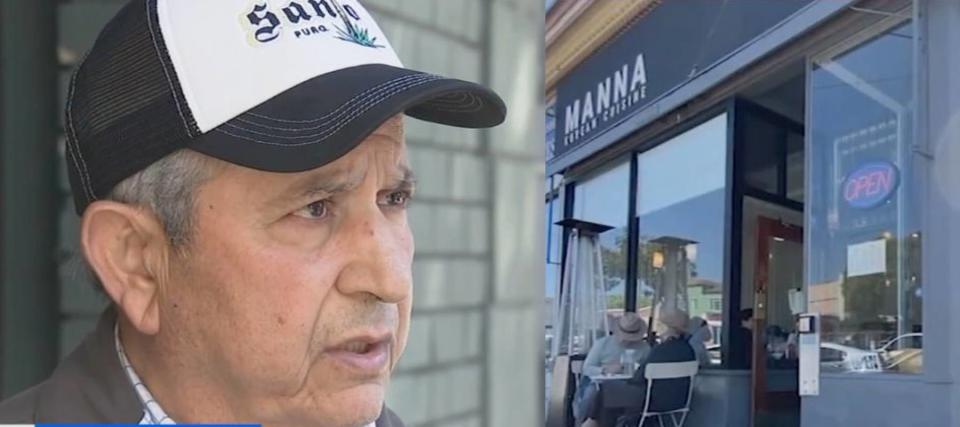How landlords like this one in San Francisco are keeping their commercial rents low — and their profits high

San Francisco rent is notoriously expensive — particularly for commercial leases. But there are some landlords who don’t believe it has to be that way.
Abid Dudum owns 14 commercial properties in San Francisco — and despite an increasingly desolate city, they’re all occupied by tenants.
Don't miss
Commercial real estate has beaten the stock market for 25 years — but only the super rich could buy in. Here's how even ordinary investors can become the landlord of Walmart, Whole Foods or Kroger
Car insurance premiums in America are through the roof — and only getting worse. But 5 minutes could have you paying as little as $29/month
These 5 magic money moves will boost you up America's net worth ladder in 2024 — and you can complete each step within minutes. Here's how
“I have never had an empty store in the last 10 years,” Dudum told San Francisco news station, ABC7. “This is how I negotiate leases with the old tenants: make yourself happy. Give me a number, and if you are happy, I'm happy.”
This stands in stark contrast with a nearby vacant unit, which used to house a T-Mobile shop. The $15,000 a month property sits empty.
Could flexible rent prices be the answer to the real estate bubble in San Francisco?
How can he hand out cheap rents?
Dudum told ABC7 he’s been a landlord in San Francisco for a long time, which means his tax base is low. That allows him the flexibility to negotiate rates with his tenants and keep their rents down. However, Dudum adds he understands that newer landlords can’t offer the same low rates as him, as their expenses may be higher.
The pandemic decimated San Francisco real estate, particularly its retail market. According to real estate firm Cushman & Wakefield, the city’s second quarter retail vacancy rate is 7.7% — up from 5.6% a year ago.
The high vacancy rates have led the city of San Francisco to levy a tax on landlords who don’t fill their storefronts within six months. The Commercial Vacancy Tax says that landlords with empty storefronts must pay $250 per linear foot of frontage for the first year, $500 for the second year and $1,000 for any subsequent years after that.
In the past two years, ABC7 reports that the city has collected $3 million off these properties.
Landlords may want to consider taking a page from Dudum by working out deals with renters to avoid having to pay this tax.
The city even created a new initiative to help revitalize their business community: Vacant to Vibrant, which provides small businesses with grants and technical support navigating pop-up ideation, marketing, permitting, compliance and operations in San Francisco’s Financial District.
Read more: Car insurance rates have spiked in the US to a stunning $2,150/year — but you can be smarter than that. Here's how you can save yourself as much as $820 annually in minutes (it's 100% free)
Local investors win over big ones
It’s not just the cheap rent that has businesses sticking with smaller landlords, such as Dudum, but also the community connection.
Alex Sinclair owns the Willow on the Green, a British fine foods and cheese store located in San Francisco’s Inner Sunset district. He told ABC7 that his landlord hasn’t increased the rent since the pandemic.
“The people who are in the area, they keep their rents low enough that businesses can grow and survive,” he said.
But local property owners aren’t the norm. Real estate firm JLL’s most recent numbers say that private capital provided 80% to 90% of offers on commercial real estate at the start of 2023, the San Francisco Business Times reports.
Sinclair thinks this private capital takeover will backfire.
“People who are using this as investment with trusts and funds are seeing pre-pandemic numbers that they want to have, but they’re not getting anyone to be able to afford those rents,” he told ABC7.
What to read next
Unlock access to 4,700+ hand-picked, single-family homes across America — and the juicy rental cash they can generate. Here's how to start with as little as $10
82% of Americans are missing out on a savings account that pays over 10 times the national average
Rich young Americans have lost confidence in the stock market — and are betting on these assets instead. Get in now for strong long-term tailwinds
This article provides information only and should not be construed as advice. It is provided without warranty of any kind.